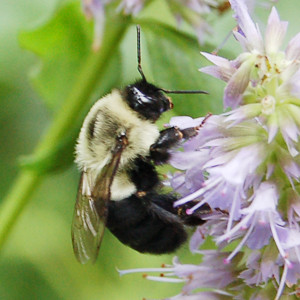 Below is a Sample Letter to a Local Legislator from a Citizen. Note: This does not address a specific piece of pending legislation but instead raises points relevant to the current issue of Bees and Pesticides and offers recommendations for action.
Below is a Sample Letter to a Local Legislator from a Citizen. Note: This does not address a specific piece of pending legislation but instead raises points relevant to the current issue of Bees and Pesticides and offers recommendations for action.
Dear Legislator,
Begin with personal details such as:
- Being a resident of your District and a gardener, I am deeply concerned about the hazards to bees, to other pollinators and to ourselves from use of chemical pesticides for cosmetic purposes on lawns and gardens. These are problems that need your immediate, appropriate action to remedy.
Follow up with background information that details the problem:
- Bees contribute to production of a significant number of food crops — over 30% — that we consume regularly. They are essential components of our horticulture and our agriculture yet their populations are under threat and in decline.
- Scientific evidence indicates that there is ongoing harm to bees and other pollinators from exposure to pesticide chemicals especially those from the neonicotinoid insecticide group.
- There has been a recent decline in pollinator populations and a crisis of unsustainable losses in managed honey bee colonies in the USA and other parts of the world (Brown & Kegley, “Running the risk, Pt 1: An overview of honey bee risk assessment basics,” American Bee Journal, Oct. 2014). Chemical pesticides have been associated with this decline.
- As a California pesticide regulator acknowledged there is inadequate regulatory protection of pollinators from chemical pesticide hazards.
- Scientific evidence from exposure to mixtures of chemical pesticides is not required by regulatory agencies for assessing the hazards to bees yet this is the chief way that bees under field conditions encounter pesticides.
- “Pesticides have medical impacts as potent as pharmaceuticals do, yet we know virtually nothing about their [multiple exposure] synergistic impacts… ” (Winston, M., “Our bees Ourselves, The NYT, 7-15-14).
- The recent loss of pollinators has prompted action at the highest government levels with President Obama announcing in June 2014 the creation of “A Federal Strategy to Promote the Health of Honey Bees and Other Pollinators.” In conjunction with the announcement, The Washington Post carried a full page article on threats to bees, with the title “We’re all getting stung.” The author advised that to help bees we humans should “Avoid using pesticides; [and] eat foods grown without them.” (TWP, June 24, 2014)
- Neonicotinoid insecticides (neonics) are nerve poisons. They act as systemic pesticides in plants and are regularly taken up through the plant roots. Once neonics are sprayed on the soil they can continue to be available to plants through their roots even if no additional spraying takes place. Once in the plant neonics spread to all parts of the plant including nectar and pollen.
- The most commonly used neonic, Imidacloprid, can persist in the soil for between 30 to 100 days.
Provide Recommendations:
- Lacking regulatory action by the USEPA, I urge local governments to restrict residential use (for ornamental landscapes) of toxic chemical insecticides known to be hazardous to bees and other pollinators.
- Takoma Park, Maryland and Ogunquit, Maine have taken steps to reduce exposure of bees to pesticide chemicals. They can be contacted for assistance.
- Localities need to encourage public and private organizations to follow the lead of First Lady Michelle Obama by initiating pollinator gardens everywhere. Such gardens need to be kept free of chemical pesticides!
- The planting of chemical-free pollen and nectar sources (including asters, milkweed, goldenrod, purple cone flower, etc) throughout the country could result in communities contributing to the restoration of important and threatened pollinator populations and more citizens enjoying the sense of wonder that comes from observing increased numbers of visiting butterflies and wild bees to residential landscapes
- Localities need to ban the use of neonicotinoids on ornamental seeds and plants as well as for sale in garden centers to help recovery of depleted pollinator populations including honey bees and wild bees. This effort can give protection from these neurotoxic insecticides as well to people known to be more sensitive to pesticides such as young children, pregnant women and older adults. (references available on request)
- Merchants selling ornamental plants need to include organic choices in their offerings to the public, especially for those plants that produce nectar and pollen and are attractive to bees.

